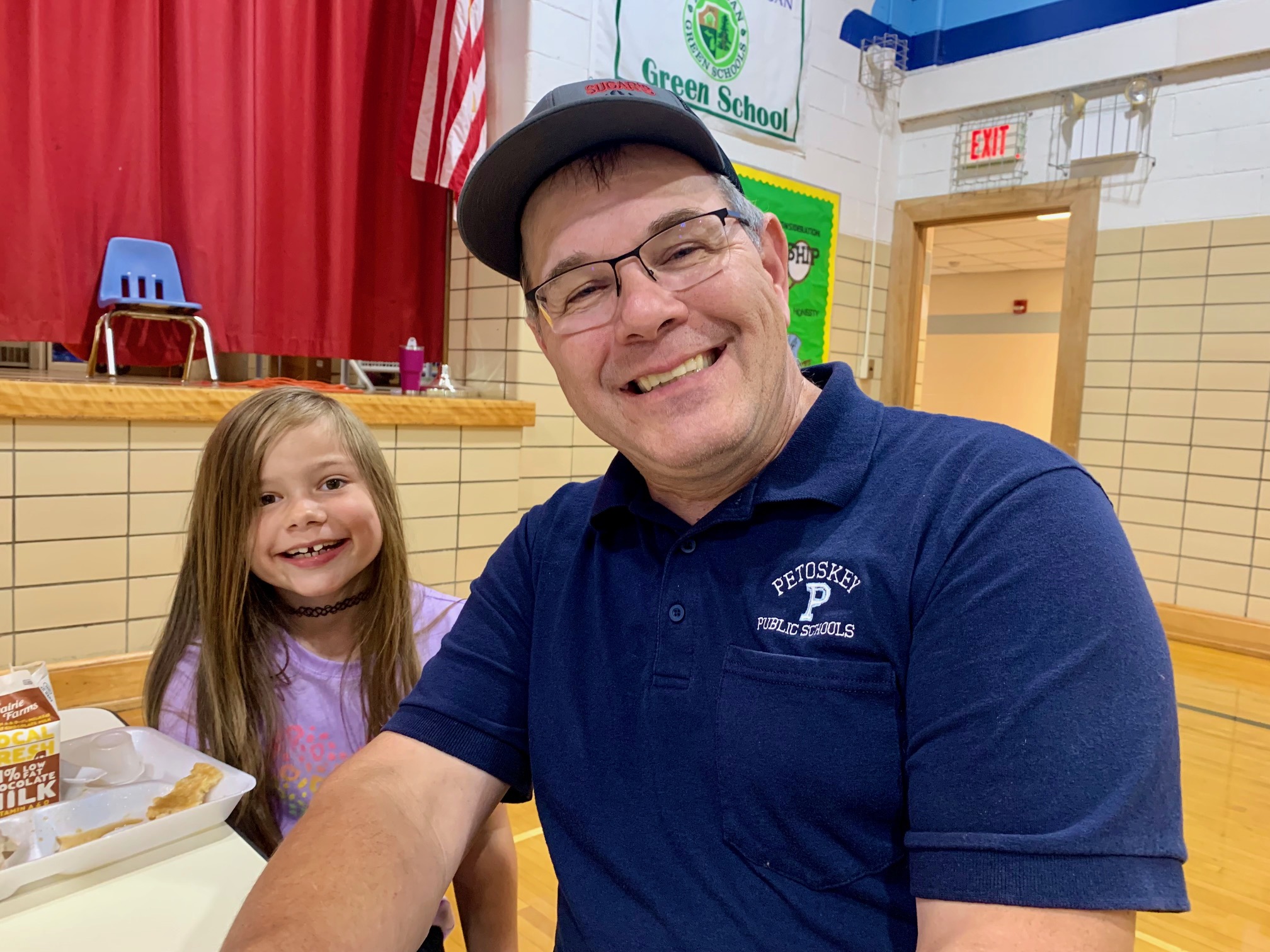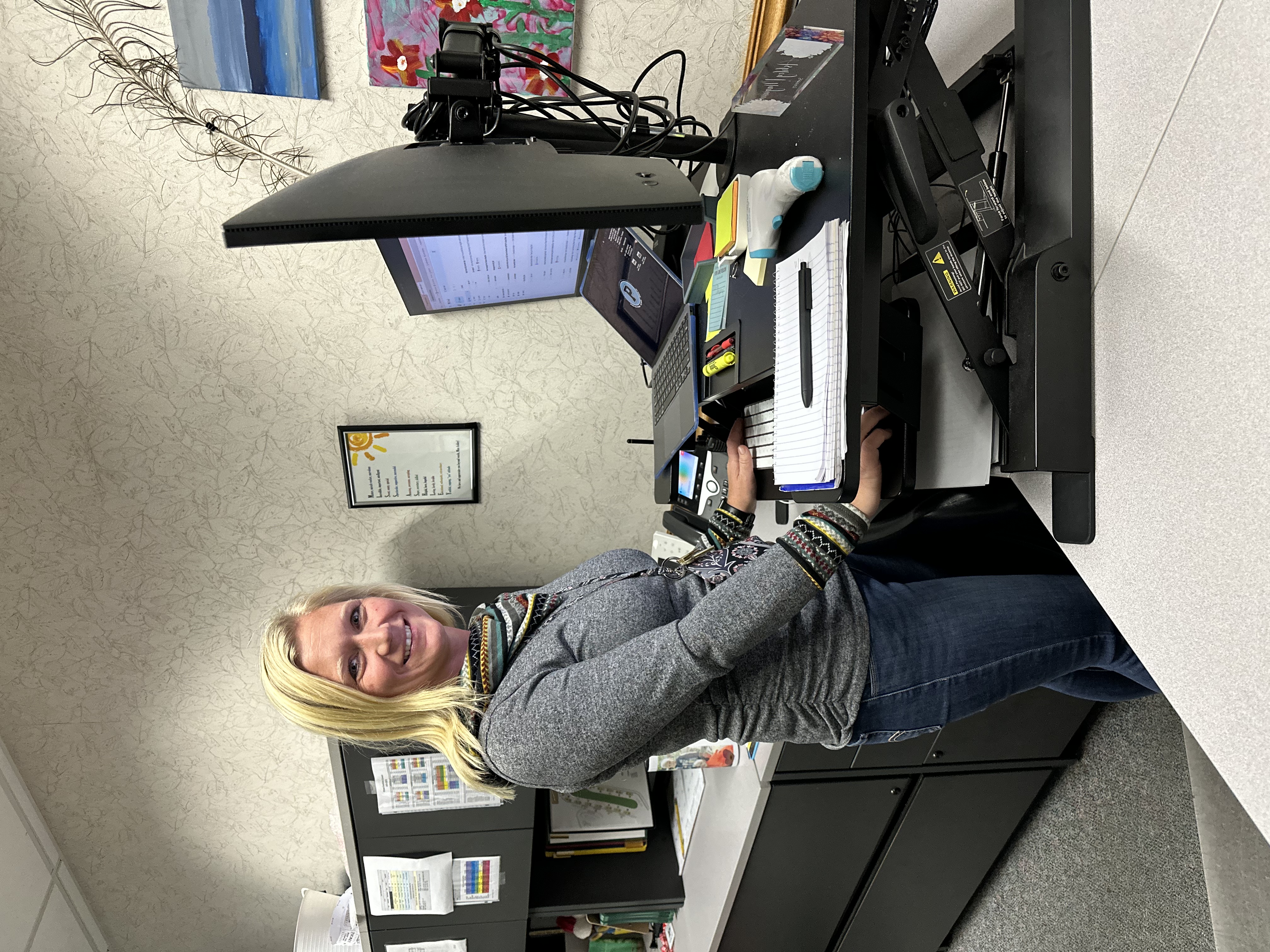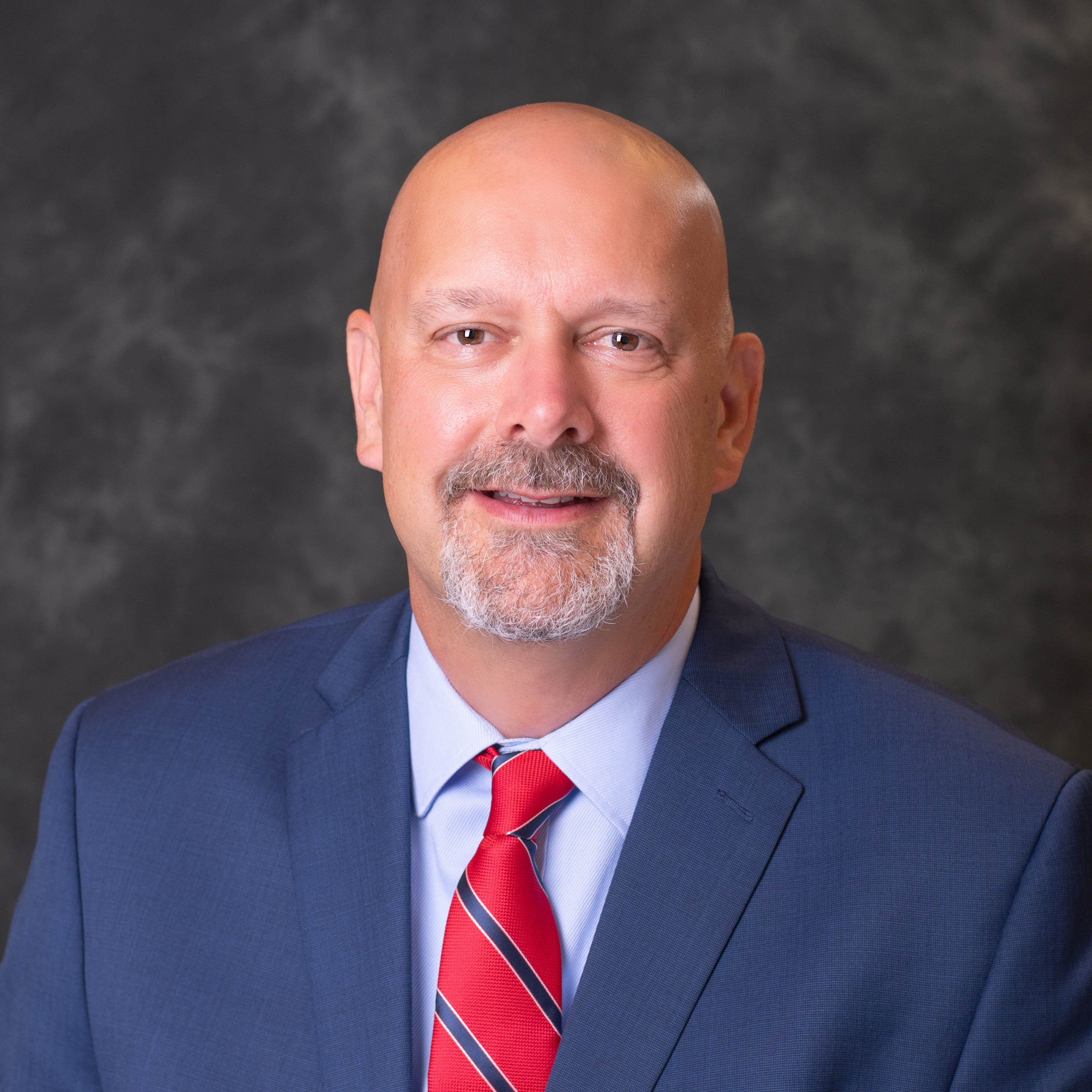Aides, custodians join Petoskey union

When Ron Furgeson first joined Petoskey Schools as a custodian nearly 30 years ago, he subbed on nights for nearly a year before a longtime employee retired and he took that coveted permanent spot—allowing him to leave his factory job for a full-time role that felt more meaningful.
At the time district custodians earned good pay, benefits and retirement, and a friend told him subbing could get his foot in the door, Furgeson said.
“I liked the idea of working in Petoskey schools; it’s where I went to school, and I thought it’d be a great place to make a career and be part of something good.”
It’s been wonderful, he said, especially since he shifted schools to replace a retiring 42-year veteran at Lincoln Elementary in 2010. “I enjoy the kids, and I have a great relationship with the teachers, and we have fun. I don’t think I could have ever done anything that would be more rewarding.
“The coolest thing for me every day is I get to go there and take care of that building and make sure my customers—the kids and staff—have everything they need.”
Each morning, Furgeson stands at his school’s entryway greeting students by name. At lunch, he sings for birthday kids and compares hunting and fishing stories with others. He knows for some youngsters, the safety and connection they feel at school is the best part of their day.
“I’ve got a million dad jokes, so I bring a little bit of a lighter side to whatever’s going on. They call me Mr. Ron, and you know—the elementary kids still think the custodian’s a cool guy.”
Then things changed midway through Furgeson’s career. About 17 years ago, custodial services in Petoskey were privatized and longtime union-represented custodians began to be replaced as they left with non-union hires employed by Edustaff, a contracted third-party company.
Employees like Furgeson retained union-negotiated pay and benefits, but over years as changeover happened to lesser-compensated third-party hires, negative effects played out. Instead of being sought-after, custodial jobs became hard to fill. Turnover is high, and “rooms don’t get cleaned,” Furgeson said.
At one point this fall, only three union custodians remained out of 12 total in the district. A full crew would be at least 20 full-time custodians for days and nights, but applicants are scarce and new hires often leave within days or weeks for employers that pay more and offer other benefits.
“It’s gone down the tank to the point where we constantly have overtime and people working extra shifts,” Furgeson said. “There’s guys that’ll do it—they need the money—but it’s just a paycheck; there’s no good thing at the end of the road for them.”
However, improvement is on the way.
In a hopeful change that Furgeson and others advocated and Superintendent Jeffrey Leslie embraced, beginning Jan. 1 all existing custodians will transition back to direct employment by the district and union representation by the Petoskey Educational Support Professionals Association (PESPA).
“It was a bit of a struggle, but we got it done and it’s the biggest thing that’s happened here since I’ve been an employee,” Furgeson said. “This success story of coming back to where we started means we’re going to take care of people and make this a job that’s worth having again.”

That’s not all. In addition to custodians returning to direct-hire unionized positions, dozens of classroom aides also were restored as district employees after a decade of privatization—beginning at the start of this school year—and now they’ve joined PESPA for the first time ever.
Upon their return to direct hire, the aides got a pay bump and single-person health insurance only—better than before but not the deal that unionized secretaries or custodians had from their PESPA collective bargaining agreement.
The aides held a meeting to discuss unionizing, said MEA UniServ Director Adam Bedwin, who serves Petoskey units. “We had a veteran aide there who told the group, ‘We tried to organize 20 years ago but decided not to; then we lost our retirement and insurance.’
“That one line changed the entire tone of the room,” Bedwin said.
The group began gathering authorization cards for a potential union election, and once they had more than enough at nearly 60% they approached the district about accreting to the unit through voluntary recognition in lieu of an election via the Michigan Employment Relations Commission.
The district consented and plans were ironed out in letters of agreement, which brought the PESPA unit’s membership count from 13 to 80.
For Bedwin, two things are clear from his perch in Petoskey: “Unions do important work getting everyone a voice in their workplace, and as a result district leaders are realizing that privatization is not in their long-term best interest.”
As with the losses of good custodians, during the years that classroom aide positions were devalued and contracted out—causing frequent turnover and unfilled positions—students paid the highest price, said PESPA President Ashley Maginnis, the main office secretary at Ottawa Elementary School.
Aides in Petoskey work one-on-one and in small groups with some of the most vulnerable students, those in special education or who need extra help in reading and math, Maginnis said. It’s hard for those children to lose adults they counted on.

“It’s heartbreaking when you see a student that has a connection to an aide and that person has to quit in the middle of the year because they can’t make it financially. We’ve had aide positions posted year-round because we can’t get people to apply.”
She doesn’t blame anyone for leaving, Maginnis said. In fact, it’s why she stepped up to be president of the dwindling unit last September: “I wanted to advocate for people who are helping raise the next generation of kids but getting paid less than people working at Subway.”
Her own mother has worked as a special education aide at Maginnis’ school for 28 years and retained single-person insurance and the state defined-benefit retirement plan despite new hires being privatized for a while, she said.
Both mother and daughter work multiple jobs to make ends meet. Maginnis works winter weekends at the local ski resort and also cleans houses while juggling a blended family that includes six children ranging in age from 7 to 16.
“The pay has gotten better, but it’s still not great,” though because of the union she has family insurance plus paid vacation, holidays and retirement, she added.
Living in a small town and being office secretary in the school where she grew up isn’t unlike being the mom of a large family, Maginnis said. She gets to know all of the school’s 250 kids and families, “every mom, dad, uncle and cousin.”
She loves making sure kids see a smiling face when they walk into the office. “I can’t imagine working anywhere else and enjoying it as much,” Maginnis said, yet joy doesn’t pay bills and talk of de-privatizing and unionizing aides and custodians has continued for years in Petoskey.
The successful organizing effort is good news for the district, she noted: “If you can hire people and get them to stay, there’s consistency for the kids.”
Even more, it’s good for the aides who do so much and have gotten too little in return over the past many years, Maginnis concluded.
“They deserve it. They’re in the trenches with the kids day in and day out, working hard just like the teachers, but definitely under-appreciated for all they do. I just want them to have pay and benefits to let them know they’re valued for the jobs they do every day.”



